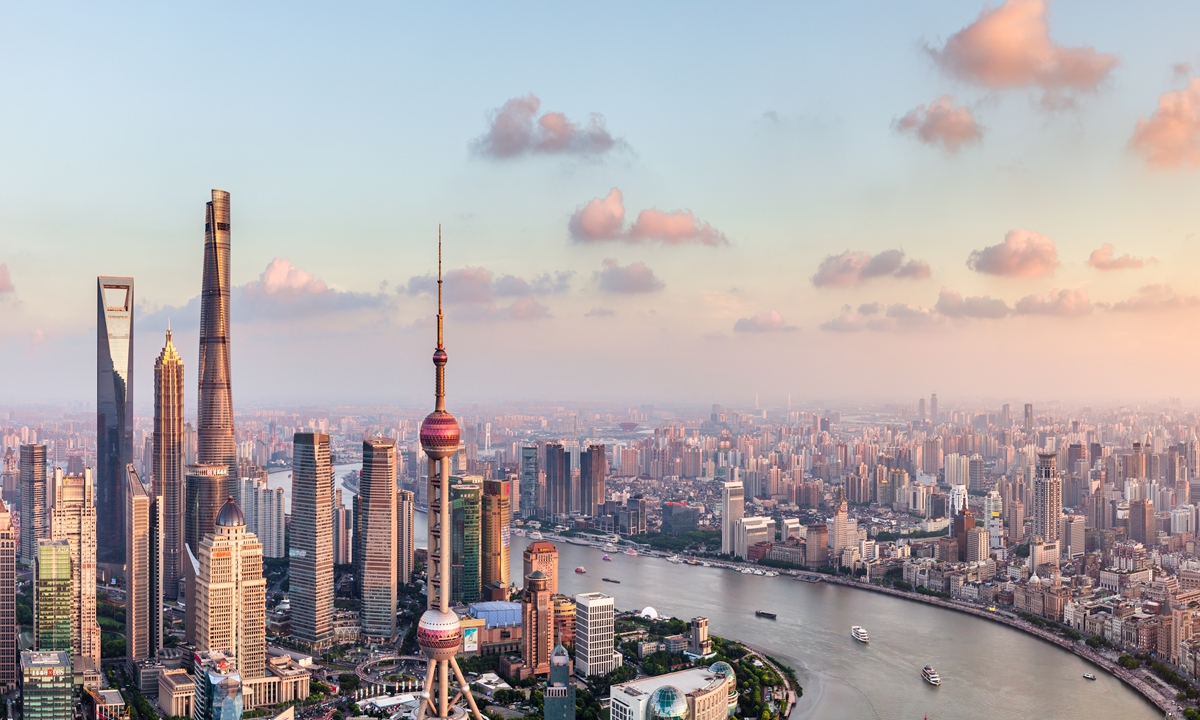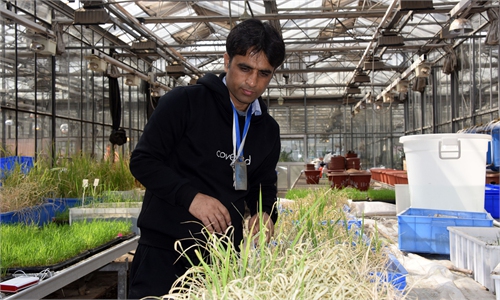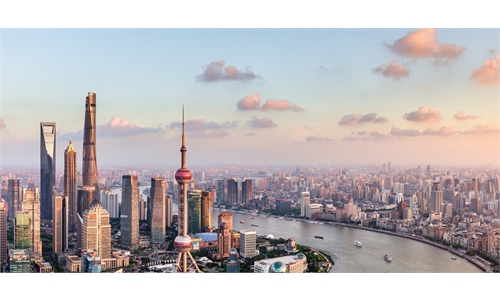China’s actualized FDI maintains double-digit growth from Jan to Nov, showing sustained appeal for overseas capital

A view of Shanghai Photo: VCG
China remains an attractive destination for foreign investors, with the actual use of foreign investment witnessing double-digit growth in the first 11 months of this year, highlighting the country's sustained magnetic appeal for overseas capital despite global turbulence.
The data came as China further optimized its COVID-19 prevention and control measures and aims for an overall improvement in economic operations, and Chinese observers said there will be a further increase next year, given the support from central and local governments.
The actualized foreign direct investment (FDI) totaled $178.08 billion in the first 11 months of this year, an increase of 12.2 percent year-on-year, Shu Jueting, spokesperson of the Ministry of Commerce (MOFCOM) told a regular press conference on Friday.
Specifically, the actual use of foreign capital in high-tech industries increased by 31.1 percent year-on-year, with the high-tech manufacturing industry seeing an increase of 58.8 percent, and the high-tech service industry increasing by 23.5 percent.
"Based on last year's high performance, this data is still in line with expectations, indicating that China's actual use of foreign capital is still in a state of rapid growth," Tian Yun, a veteran economist, told the Global Times on Friday, adding that the use of foreign capital in the high-tech manufacturing industry still maintained a rapid growth rate, which shows the investment structure is improving.
A breakdown of the FDI numbers revealed that South Korea's actual investment in China soared by 122.1 percent. The amount of FDI from Germany rose by 52.6 percent, that from the UK went up 33.1 percent and the figure from Japan was 26.6 percent higher.
Measured by domestic regions, eastern China recorded a 7.7 percent increase in the actual use of FDI, per MOFCOM data, with 28.6 percent for central China and 24.6 percent for western China.
The FDI to China from Germany, South Korea, and Japan all increased by more than 20 percent, which proves that global capital is not leaving the country and that there is no "decoupling" from China, Tian added.
Chinese experts said the reason why South Korea and Germany have the fastest growth rate of investment in China is related to China's industrial upgrading. For instance, South Korea is expanding investment in the field of electronics, especially in the field of chips, and Germany is expanding production capacity in electrical, mechanical and auto parts, which has benefited from the rise of China's industrial production capacity.
A better performance is expected next year as China optimizes its COVID-19 prevention and control measures, Tian said.
Businesses from the two countries enjoy longstanding cooperation, and bilateral economic and trade ties have long been deeply integrated. Severing those ties and "decoupling" are simply impossible, said Chinese Premier Li Keqiang when German Chancellor Olaf Scholz made a trip to Beijing earlier in November, and the two sides met along with representatives from the Chinese and German business communities.
Samsung's chip plant in Xi'an, capital of Northwest China's Shaanxi Province, expects its 2022 output value to top 100 billion yuan ($14.3 billion) despite obstacles brought by the COVID-19 epidemic, according to the Xinhua News Agency on December 8.
The factory in Xi'an has not stopped production once in the past three years, Junghyun Seo, vice-president of Samsung China Semiconductor Co, was quoted as saying.
The MOFCOM data came as China further optimized its COVID-19 response and eyes an overall improvement in economic operations, while the just concluded tone-setting Central Economic Work Conference also called for greater efforts to attract foreign capital and widen market access.
MOFCOM said on Friday that China will continue to expand its opening-up, reasonably reduce the negative list of foreign investment access, further relax the access threshold, and increase the opening-up of the modern service industry.
China will also guide foreign investment into key areas such as advanced manufacturing, modern services, energy conservation and environmental protection, and technological innovation, Shu said.
Business delegations led by local governments from Guangdong, Zhejiang, Jiangsu, Fujian and Sichuan provinces are ramping up efforts to secure overseas orders and attract investment, as orders for some labor-intensive products have been heavily affected by the pandemic.
In order to support more foreign trade enterprises to go overseas and secure orders, Shu said on Friday that it will facilitate the movement of business people, utilize both online and offline exhibitions, and help firms to obtain overseas market information.


